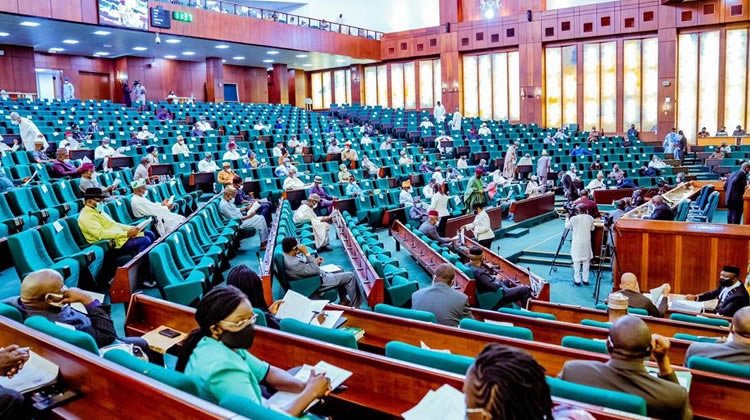
The House of Representatives has urged the Central Bank of Nigeria to, “in the public interest,” introduce stringent regulations and guidelines, including sanctions, on the Point of Sale business operations in Nigeria.
Also, the House mandated its Committee on Banking and Currency to organise a stakeholders’ meeting for the purpose of “tackling the menace” of POS operations in the country.
The resolutions were sequel to the unanimous adoption of the motion moved by a member of the House, Jimoh Olajide, titled, ‘Urgent Need to Regulate the Point of Sale Business Operations in Nigeria.’
Moving the motion, Olajide noted that the POS is where customers make payments for products or services rendered, but due to many factors, “the POS has been turned into a lucrative business in Nigeria and has provided jobs for millions of unemployed Nigerians that see it as a good alternative to white-collar jobs in the country.”
He said, “While many Nigerians are making legal money from this lucrative business, some are using it for fraudulent acts to create fake credit alerts to defraud innocent customers hence the need for government intervention to rescue the rising business sector in the country.”
Olajide said, “The House is worried that the POS merchants in Nigeria are not only licensed by commercial banks, other private companies are currently in the business of giving out POS for business purposes, thus making the business to be more porous and ambiguous.
“The House is concerned that presently, no financial regulatory bodies in Nigeria can precisely ascertain the total number of POS machines and their operators in the country.”
The lawmaker made reference to a report by The PUNCH on December 21, 2021, of the allegation by the residents of Aniocha South Local Government Area of Delta State that members of staff of Union Bank and First Bank, Aniocha branches, deliberately sabotaged the banks Automated Teller Machines on non-availability of cash, thus leaving customers with no choice to patronise the alleged banks staff-owned POS centres around the banks.
He noted that in exercising the powers conferred on the Central Bank of Nigeria by the Central Bank of Nigeria Act 2007 (as amended) to issue guidelines, rules and standards for financial services to the public and to ensure good conduct and management of the financial system, the apex bank had released ATM guidelines and regulations.
He added that the guidelines and regulations include, among other things, that any institution operating an ATM shall file an updated list of such ATMs, including the detailed location of their addresses with the Banking and Payments System Department of the Central Bank of Nigeria for compliance and monitoring.
Olajide said, “The House is worried that some of the POS operators fraudulently charge exorbitant amounts of money from their customers’ bank accounts, while some retain vital information from customer’s ATM cards in the course of making the financial transactions.”
Copyright PUNCH.
All rights reserved. This material, and other digital content on this website, may not be reproduced, published, broadcast, rewritten or redistributed in whole or in part without prior express written permission from PUNCH.
Contact: [email protected]





